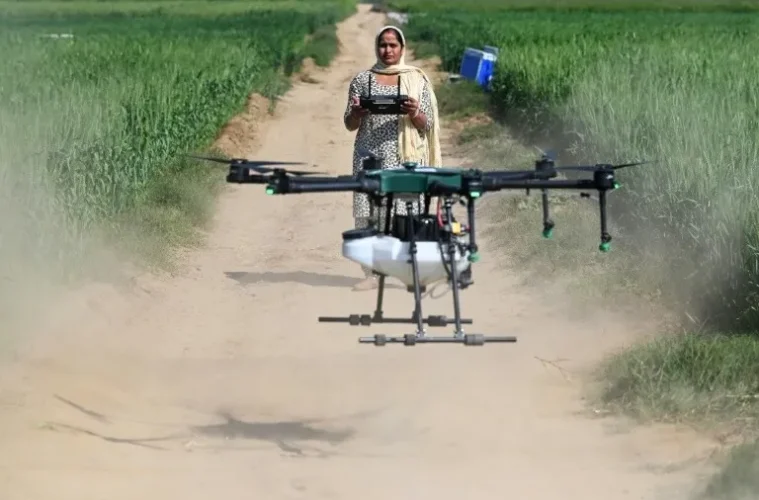India, with a thriving agricultural sector, faces the constant challenge of increasing agricultural productivity while minimizing the environmental impact of intensive agricultural practices. In this context, the use of advanced technologies, including drones, is an ideal solution to meet this challenge.
Agricultural drones, equipped with advanced sensors and high-resolution cameras, are able to optimize the use of fertilizers, reduce fertilizer costs. They also allow Indian farmers to monitor crops accurately, providing detailed images and real-time information on plant health, soil quality, and the presence of moisture.
With this data, farmers can easily identify areas that need special attention and apply fertilisers in a targeted manner to an entire field. Other benefits of this approach include reducing waste, limiting groundwater infiltration, and reducing the ecological footprint of agriculture.
The Indian government, recognizing the potential of this technology, has recently launched pilot programs in several key farming states, such as Punjab, Maharashtra, and Uttar Pradesh. These initiatives aim to test the effectiveness of drones in various types of crops and climatic conditions. The preliminary results are promising: farms using drones have seen a significant reduction in fertilizer costs, reaching 20% and an improvement in yields of up to 15%.
In the face of such success, the country plans to expand the use of drones on a larger scale in the coming years.




